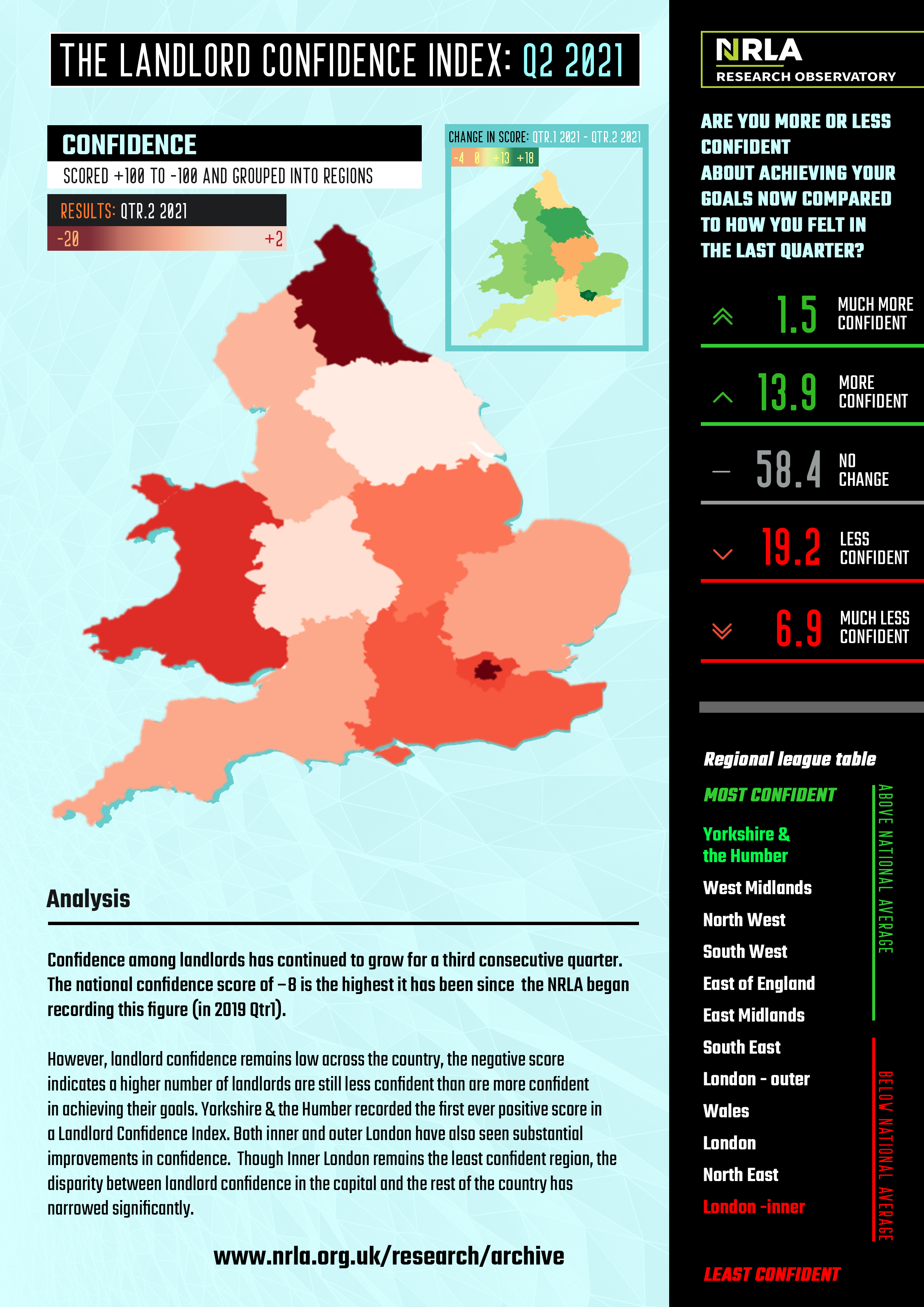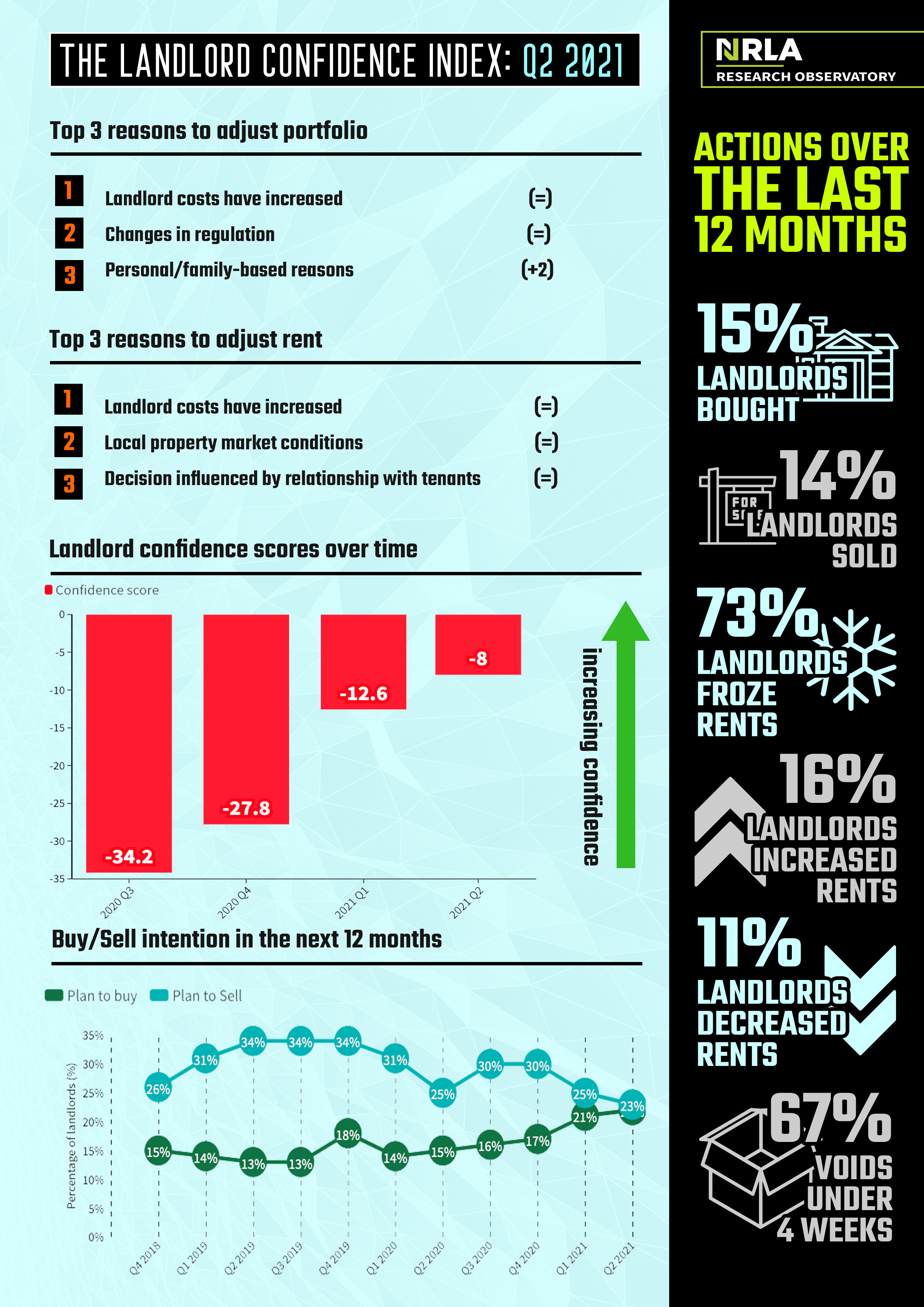

Research Aidan Crehan
Landlord Confidence Index Q2 2021
About the Landlord Confidence Index
The Landlord Confidence Index (LCI) summarises in infographic form how the key influences and policies which have an impact on the supply side of the PRS feed through into market confidence and psychology.
The data is captured quarterly and builds into a unique barometer of landlord sentiment and concerns. A more detailed commentary on this data can be found by using this link.


